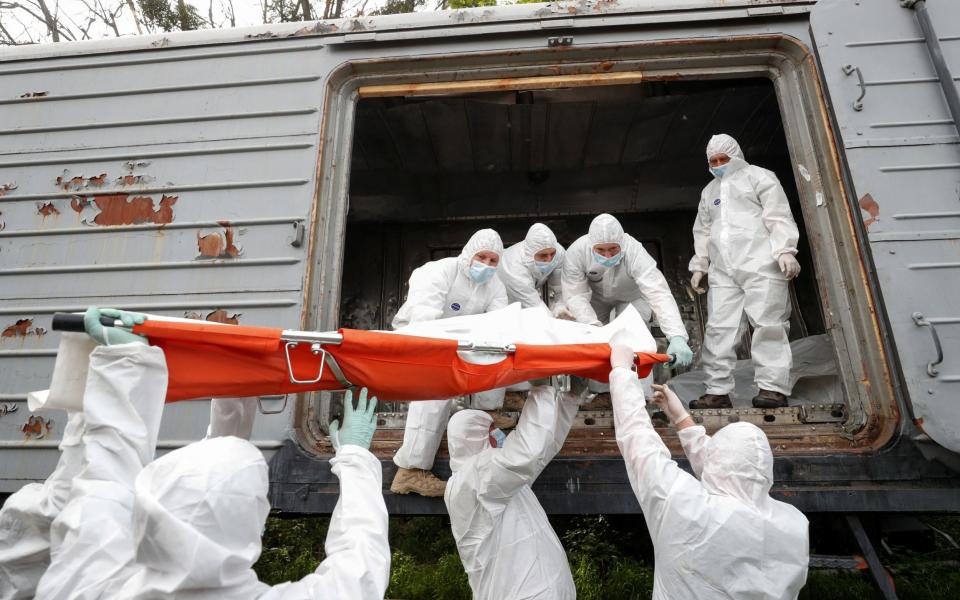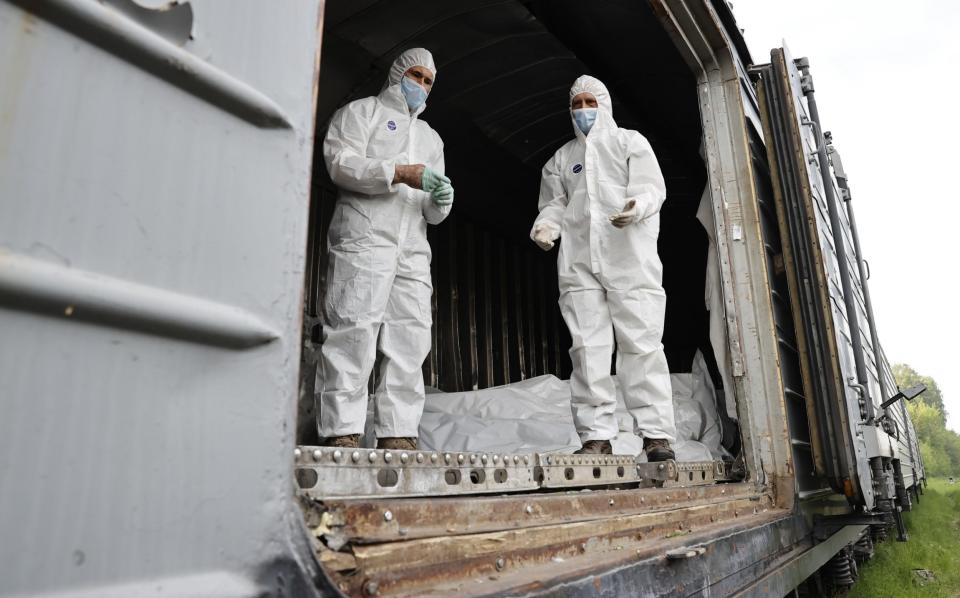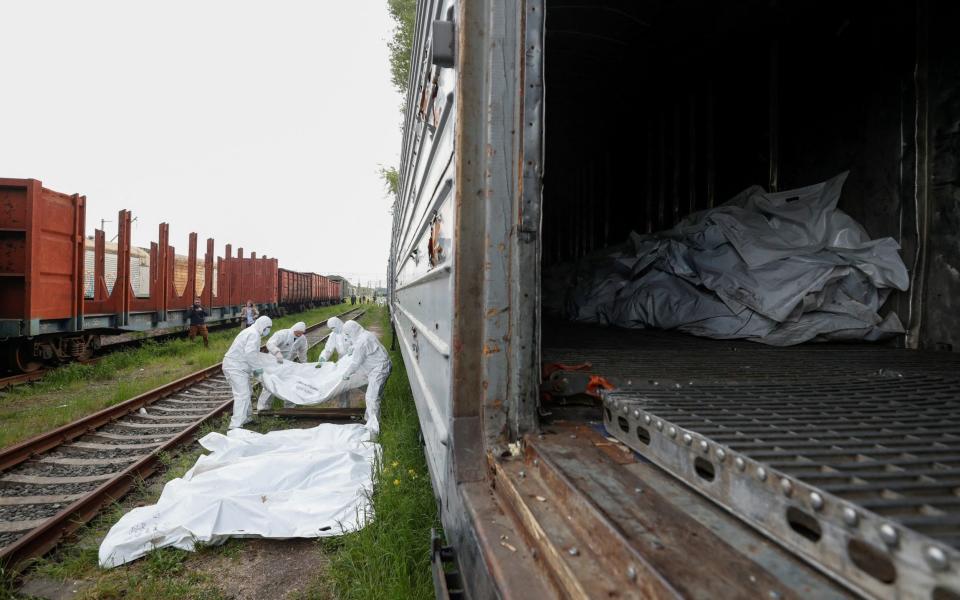Russia ‘refusing’ to take soldiers’ corpses as it tries to hide scale of losses in Ukraine

Russia is reportedly refusing to take bodies of its soldiers killed in fighting in Ukraine, with corpses piling up in refrigerated train cars outside the Ukrainian capital.
Col Volodymyr Lyamzin, Ukraine’s chief civil-military liaison officer, said several hundred bodies have been collected from the battlefield in the Kyiv and Chernihiv region and brought to a railyard outside the Ukrainian capital.
They are being kept on a train until the Russian government agrees to take them.
“Ukrainian authorities are dealing with this issue because Russia refuses to take them,” he told Al Jazeera.
“Each body testifies to war crimes. If they keep refusing to take the bodies, Ukraine will bury them.”
Soldiers dressed in white protective suits were seen loading bodies of Russian soldiers, wrapped in white body bags, on refrigerated train cars on Friday afternoon.
Inside the cars, the bodies were stacked up several layers deep.


There are several similar trains in other Ukrainian regions that are keeping more bodies of Russian soldiers, bringing the overall number to thousands, Col Lyamzin said.
Ukrainian officials have previously raised concerns about unclaimed Russian bodies, saying that Moscow fears that repatriating all the casualties would shed light on the scale of Russian losses in Ukraine that the Kremlin is trying to hide.
“Russians are refusing to even hold talks about it,” Iryna Vereshchuk, Ukraine’s deputy prime minister who is in charge of negotiating prisoner swaps with Russia, said earlier this week.
“They probably think that bodies of Russian servicemen do not deserve to come home and get a decent burial.”
Russia has not updated its official death toll since late March when it stood at over 1,351.
It is still unclear how many soldiers were killed last month when a Ukrainian rocket hit Russia’s flagship missile cruiser Moskva with several hundred men on board. Russia officially admitted one person killed in the Moskva sinking while relatives spoke of at least several dozen missing.
A Russian navy officer in an official reply to the father of one missing sailor earlier this month refused to divulge any details about what might have happened to the man.
Ukraine’s government claims over 27,000 Russian troops have been killed in the country since the invasion began in February.
Soldiers killed in Ukraine have been buried across Russia with military honours but the funerals have been too few compared to the estimated scale of the losses.

 Yahoo Finance
Yahoo Finance 